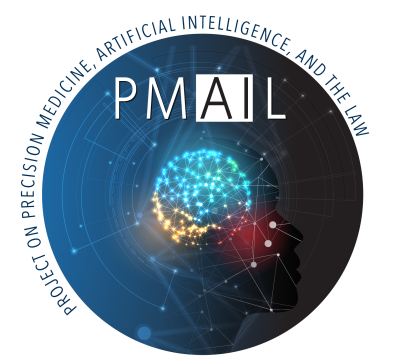The Project on Precision Medicine, Artificial Intelligence, and the Law (PMAIL)/Inter-CeBIL

Launched in early 2018 by the Petrie-Flom Center for Health Law Policy, Biotechnology, and Bioethics at Harvard Law School and the Center for Advanced Studies in Biomedical Innovation Law (CeBIL) at the University of Copenhagen, the Project on Precision Medicine, Artificial Intelligence, and the Law (PMAIL) will seek to better understand the frontiers of big data in health care diagnostics, through interdisciplinary analysis of important health law and policy issues.
As of November 2023, Petrie-Flom and the Center for Advanced Studies in Biomedical Innovation Law (CeBIL) at the University of Copenhagen have announced a second generous five-year grant from the Novo Nordisk Foundation that enables the PMAIL project to continue its close collaboration with the International Collaborative Bioscience Innovation & Law Programme (Inter-CeBIL).
Background
Black-box precision medicine is an exciting new frontier in health care diagnostics, harnessing the power of big data. In black-box medicine, machine-learning algorithms and artificial intelligence examine newly available troves of health data, including genomic sequences, patient clinical care records, and the results of diagnostic tests to make predictions and recommendations about care. An algorithm may be “black-box” either because it is based on unknowable machine-learning techniques or because the relationships it draws are too complex for explicit understanding.
These algorithms, and artificial intelligence techniques more broadly, represent a point where health technology may outstrip human understanding. The medical community is increasingly using very complicated algorithms and cutting edge artificial intelligence to predict and guide health care, such as recommending a certain dose of insulin to a diabetic patient. Some of these new techniques support innovation and push the boundaries of medicine but others may be based on errors and lead to sub-optimal care. New legal and regulatory tools are needed to understand how this field should be developed, regulated, and implemented in order to harness the tremendous possibilities of transforming health care for the better while reflecting the difference between these tools and previous health care diagnostics. PMAIL aims to tackle exactly those issues and help develop those tools.
The Project
PMAIL will provide a comparative analysis of the law and ethics of black-box precision medicine, explaining the shortcomings of the current innovation policy landscape in Europe and the US, and providing a comprehensive examination of various policy options to better harness the potential of black-box medicine. It will be a major initiative, spanning five years of study.
PMAIL seeks to answer important health technology questions, such as:
- What exactly are—or will be—the distinguishing features and added benefits of black-box medicine in comparison to traditional personalized medicine?
- What are the concrete scientific and legal hurdles to the further development of black-box medicine?
- How does the legal framework differ in the US and Europe and what could each learn from the other?
- How much control should patients have over how their data is used to produce personalized medicine models and the use of these models in their health care?
PMAIL seeks to answer these questions by: reviewing biomedical literature in order to get a basic understanding of the most important technologies for the development of precision medicine; investigating the landscape of intellectual property incentives commonly used to support the development of the technology that is most relevant to precision medicine; analyzing the implications of recent intellectual property case law in the US and the E.U. on “black box” personalized medicine; assessing and evaluating the nature, source(s), and extent of the incentive gap for developing precision medicine and the feasibility, efficacy, and lawfulness of proposed legal policy solutions.
Project Leadership
This research is supported by a Novo Nordisk Foundation-grant for a Collaborative Research Programme (grant agreement number NNF17SA0027784).




